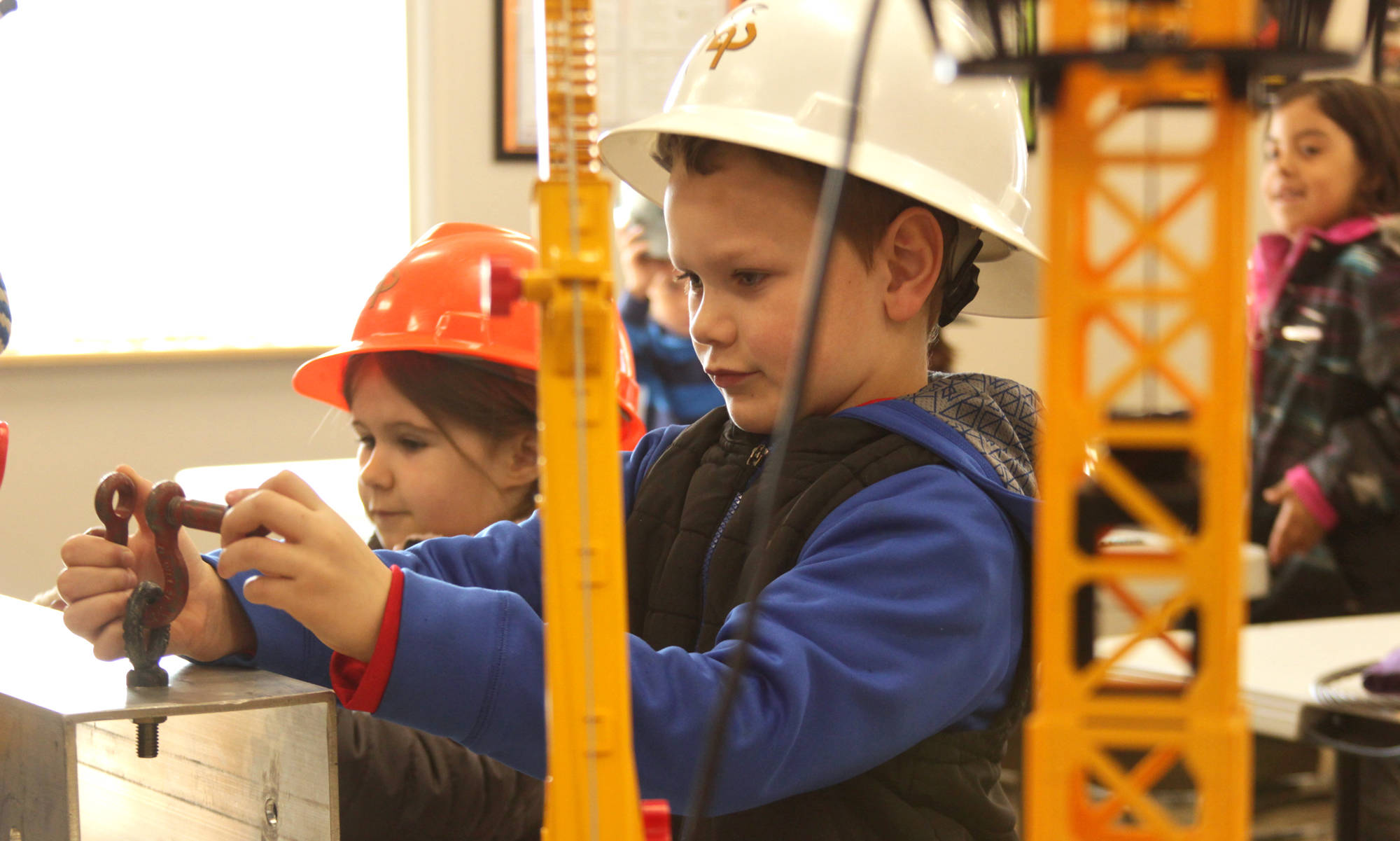Kristi Felchle’s first grade class at Kalifornsky Beach Elementary added a hands-on element to their recent lesson about work and the community: Taking a field trip to Alaska Crane Consultants, a training program site within walking distance of their school.
Alaska Crane Consultants owner and founder Bill Elmore worked for as a crane operation trainer for Arctic Slope Regional Corporation before leaving in 2013 to start his business, which offers certifying classes to prospective crane operators. Two of his grandchildren are K-Beach Elementary students, and last year he offered their classes a chance to visit and work with cranes. This year he did the same, both with Felchle’s first graders — who include his grandson, Bentley Elmore — and his granddaughter’s second grade class.
Though the adults who come to Elmore for the crane certification’s written and practical exams are often experienced industry professionals, they lack the specialized expertise of crane operation. Most arrive in his classroom “not knowing the difference between a boom and a front tire,” Elmore said. He started with the first grade students just he as does his adult students: teaching them “to speak the language of cranes,” he said.
While explaining the different types of cranes, parts of cranes, and crane-associated jobs, Elmore dashed around to gesture and demonstrate on his classroom’s numerous model cranes and pieces of rigging — items he also uses with adult students.
“You try to put a visual in their heads, what things look like, sound like,” Elmore said. “You’ve got to have confidence and competence, both. And above all, safety.”
The students picked up a new vocabulary of hand signals as well: load up, load down, left, right, and stop. After learning what riggers, tagline holders, and signal people do, the students practiced the various jobs, first in the indoor classroom. Two students — properly attired in hardhats — rigged a square beam to a shop crane, two more took hold of the taglines that would prevent it from twisting and swaying while being lifted into the air, and one signaled the beam up and down while another operated the crane.
After each student had a chance to try one of the jobs, it was time to visit Alaska Crane Consultants’ larger outdoor classroom: The yard where Elmore keeps six cranes for instruction and demonstration — four mobile cranes, plus two stationary cranes that were once mounted on Cook Inlet’s Tyonek platform. He’s used these to teach oil field service workers, construction contractors, dock loaders and students from other industries.
“What do you think we’re going to lift today?” he asked as the class headed outside.
Several of the students had visited last year as kindergartners and remembered lifting and moving a bicycle rigged to one of Elmore’s cranes. This year they’d be moving an electric toy jeep.
Bob Elmore’s son Mike Elmore, a North Slope equipment operator, watched and supervised from a deck outside the crane’s cabin. The K-Beach first graders were classmates of his son, Bentley. Like him, many were gaining firsthand experience of their parents’ jobs, said Felchle. As part of their classroom unit on work, the students interviewed their families about their jobs.
“And a lot of them did have parents who work on the North Slope or for construction companies, with cranes or other big heavy machines,” Felchle said.
One by one the students entered the crane’s cabin and lifted the jeep, moving it according to a classmate’s signals before returning it to the ground and leaving smiling.
Reach Ben Boettger at bboettger@peninsulaclarion.com.

